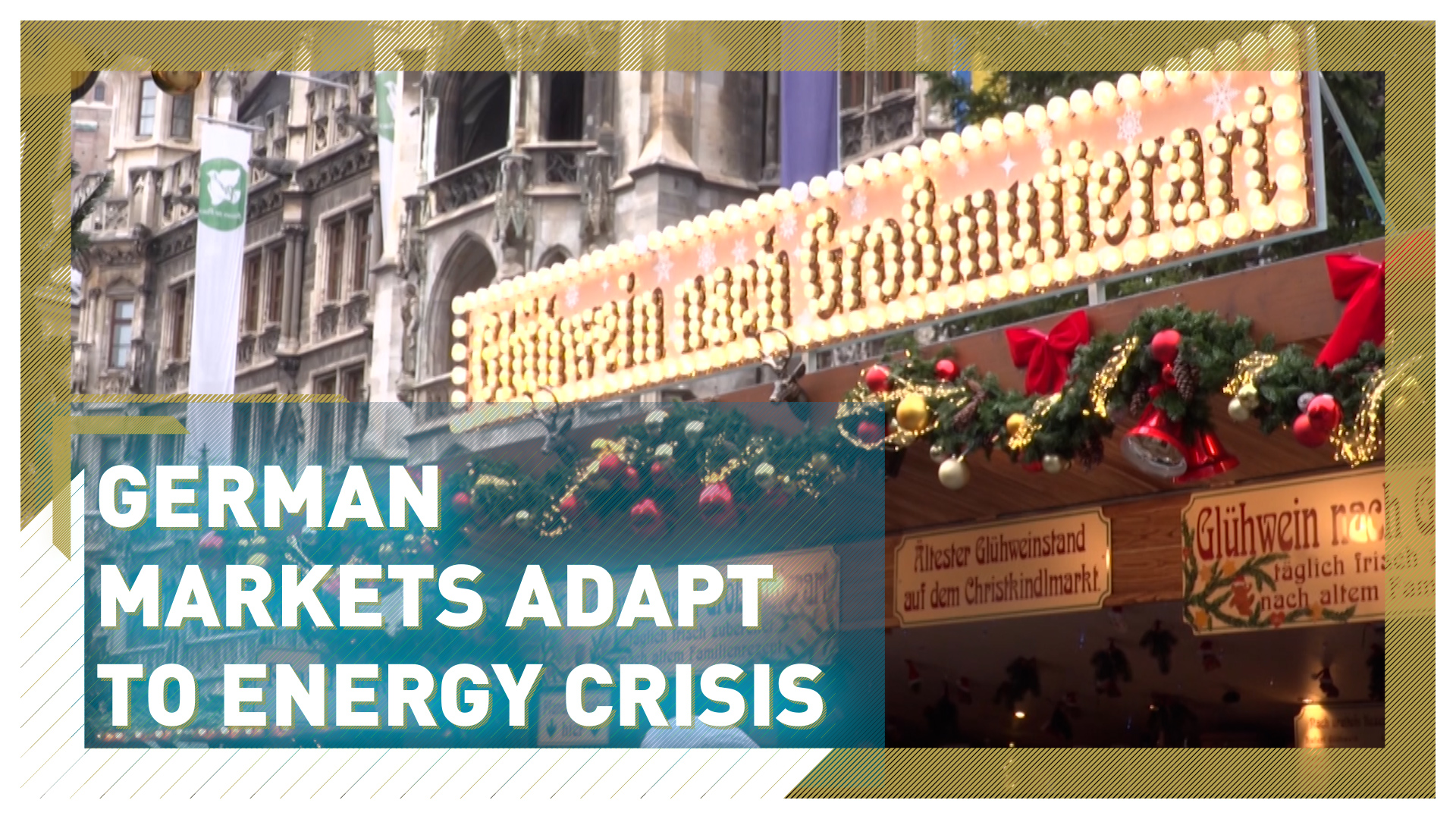03:22

Germany has had to face up to some big changes in terms of its energy sources - and costs - this year.
Before the conflict in Ukraine, Berlin was reliant on Russia for more than 50 percent of its natural gas imports. Over half of German homes are heated using gas.
To ease the supply and cost shock to consumers, the German government is spending almost $200 billion but despite that influx of cash, there are still worrying times ahead for many Germans.
READ MORE
The Secret Betrayal: China's WWII sailors
Why are UK nurses on strike?
Austria's Krampus parades too violent to insure
Berlin's Kurfuerstendam shopping street switched on the energy-saving LED Christmas lights this year, but they will only be turned on two-thirds of the usual time. Even as city authorities look to tighten purse strings, local leaders say traditions are important.
"We definitely don't want to fall into darkness," said Klaus-Juergen Meier, Chairman of the lobby group City, "but we want to show that life goes on. Hope."
Hope may be needed now more than ever. 2022 has been a tough year for many in Germany.
By mid-July, the charity Tafel Deutschland said that over two million people were using food banks, a doubling of demand over two years.
Meanwhile, Marcel Fratzscher, President of the DIW Economic Research Institute, was among those who, in the summer, feared that rising inflation could lead to things getting much worse.
"I believe you can't say it often enough: there is a dramatic social crisis which will likely get worse over the coming months. I don't think we've seen the end yet, especially in regard to inflation and prices, which hit people with low incomes the hardest by far."

A demonstrator holds a sign which reads 'Inflation! Doner prices are too high!' during a protest to promote energy independence from Russia, in Berlin,in October. Reuters/Christian Mang/File Photo
A demonstrator holds a sign which reads 'Inflation! Doner prices are too high!' during a protest to promote energy independence from Russia, in Berlin,in October. Reuters/Christian Mang/File Photo
In a change of fortune for Europe's economic powerhouse, there are fears over energy security. Berlin charities have begun advising people on how to cope with blackouts. Lessons on how to cook a meal, stay hydrated and even look after pets were on the curriculum for a generation of Germans who have never known what it is like to be without power.
"If the electricity goes out, then absolutely nothing works anymore. And we need to understand what 'nothing working' really means," course Instructor Birgitt Eberlin told the Reuters news agency.
Under Chancellor Olaf Scholz, Germany put forward a robust financial aid plan totalling nearly $200 billion. This includes an energy price cap for businesses and consumers starting in 2023 and paying the gas bill for every home in Germany in December.
He told the Bundestag that the country had the resources to get through the winter.
"Germany's energy security for this winter is probably guaranteed. It is guaranteed because the German government took a courageous turn in direction and because households and companies across the country save energy.”
The Nord Stream gas pipelines from Russia to Germany were controversial before the Russian conflict in Ukraine.
In September, massive explosions caused ruptures on both lines of the project, rendering them useless and sending huge clouds of gas spewing into the Baltic sea. Swedish investigations, which found traces of explosives at the scene, prompted Germany and Norway to ask NATO warships to help secure undersea infrastructure.

German fuel consumers may face big rises in their bills next year. CGTN
German fuel consumers may face big rises in their bills next year. CGTN
Berlin has cast the net far and wide to try to make up the deficit in gas deliveries as supplies from Russia reduced dramatically. The aim is to remove all imports of gas from Russia by 2026.
Storage and regasification ships for Liquified Natural Gas have been brought into ports costing close to $7 billion, and a 15-year deal to provide LNG to Germany from Qatar was signed on the sidelines of this year's FIFA world cup.
Norway has emerged as Germany's new top source for natural gas, ramping up existing deliveries.
Wintersahall, Germany's largest oil and gas producer, has announced just over $800 million in additional investment in the Norwegian continental shelf. As Berlin looks to Oslo to replace what used to come from Russia, German Economy Minister Robert Habeck was doing his best to measure the public.
"We will manage. We will be and remain a strong country," he said.
While those deals will certainly help in the future, in the here and now, consumers must face uncertainty and rising prices.
Mandy Stoye from Brandenburg told CGTN she fears she may not be able to afford the rise in her power bills which are expected to go up 100 percent in 2023.
"Well, I'm afraid of the mailbox. I'm afraid it will increase even further. We don't know yet how things will continue. I may have to get a second job. Then that comes with additional costs for petrol. So it won't do much, either. I'm all at a loss. So are many in the neighbourhood here.”
2022 is ending with unusually ferocious cold temperatures in the German capital, the mercury dropping close to -10 Celsius overnight.
While in previous years, this would be exactly the time to turn up the thermostat, for many, this won't be an option, even as the government spends billions to try to ease the situation.
Cover photo: An Overview of Dresden's Neustadt district with Augustusmarkt Christmas market in Dresden, Germany, December 12, 2022. Reuters/Matthias Rietschel